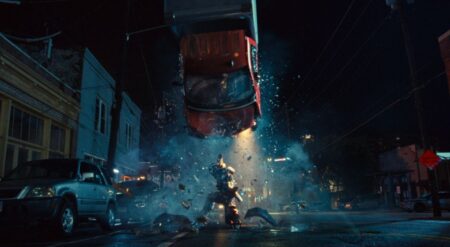Spoilers for Star Trek: Discovery Season 5
The fifth season of Star Trek: Discovery focuses on uncovering the long-hidden Progenitor technology concealed by a team of scientists over 800 years ago. This powerful technology, deemed too potent for the civilizations of its time, was safeguarded by a test to ensure that only a worthy individual could wield its capabilities, which span life, death, and boundless possibilities. However, what the crew finds in the end is something that no one expected.
The Progenitors, also known as ancient humanoids, are portrayed as one of the oldest sentient species in the Milky Way Galaxy, flourishing some 4.5 billion years ago. They seeded primordial environments of various planets with a DNA code to guide life’s evolution towards forms resembling their own. This act, intended to foster cooperation among descendant species, included Earth and other planets. Their image would lead to human civilization and the Klingons, Romulans, Vulcans, and Cardassians.
Throughout the 2360s, notable figures such as Professor Galen and Captain Jean-Luc Picard of the USS Enterprise-D uncovered fragments of the Progenitor message, eventually assembling it with cooperation from Klingons, Cardassians, and Romulans. Despite disagreements, Picard was able to band the species together. The message urged descendant species to unite in cooperation, emphasizing shared heritage and understanding.
That message didn’t stick. In the subsequent decade, a group of scientists from a variety of species conducted secretive research on the Progenitors and their message. Their investigations culminated in the discovery of unprecedented technology in deep space during the Dominion War—a war between multiple species and quadrants of the galaxy. Recognizing its immense power, the scientists vowed to safeguard it until a “worthy seeker” emerged in a time of peace and evolved morality.

In the year 3191, the recovery of Dr. Vellek’s diary by the USS Discovery reignites the search for the Progenitor technology. Eventually, Captain Michael Burnham (Sonequa Martin-Green) encounters a memory Progenitor after activating the ancient technology, which surpasses anything known in the 32nd century. The encounter leads to a startling revelation: the Progenitors are not the creators of the seeded worlds or the technology sought by the Federation. Instead, they are merely part of a timeless cycle of creation, leaving unanswered questions about the true origins of both the Progenitors and their technology.
The revelation that the Progenitors are not the creators of humanoid life and advanced technology challenges long-standing beliefs within the Star Trek canon. Before this revelation, the Progenitors were revered as the architects of humanoid life and the genetic diversity observed across the galaxy. This revelation forces characters and viewers alike to reconsider their understanding of the origins of life and technology. Unfortunately, the details of this revelation will likely never be known in the Milky Way Galaxy at large. Deemed too powerful for any one person or civilization to have, Burnham decides to send the ancient technology beyond the event horizon. Further, the Federation has decided to keep the mission under wraps.
The decision to conceal the truth about the Progenitors and their technology raises ethical questions about manipulating historical knowledge and the implications of keeping such monumental discoveries hidden from the wider galactic community. This was a fundamental truth for so long, but the series is content with not sharing it with the galaxy. It prompts reflection on the responsibilities that come with possessing knowledge of this magnitude and the potential consequences of its revelation.

In the Star Trek: Discovery Season 5 finale, Burnham experiences all of the moments that brought her to that tipping point—all 4.5 billion moments since the Progenitors seeded Earth. More than anything, this invites exploration of existential themes such as the nature of creation, the pursuit of knowledge, and the responsibilities that accompany profound discoveries. It prompts characters and viewers to contemplate their place within the larger cosmic order and the implications of their actions on the fabric of existence.
Given the mission’s secrecy, it is unclear when or if the Progenitors will be revisited in the Star Trek canon. What we do know is that there is more to find out. Godlike species are nothing new for Star Trek. However, the Progenitors felt like the closest thing to humans with the capabilities that those multidimensional had. Knowing that there was or maybe even still is a species that predated even the Progenitors in our galaxy shows that there are still points in the galactic past to boldly go.







